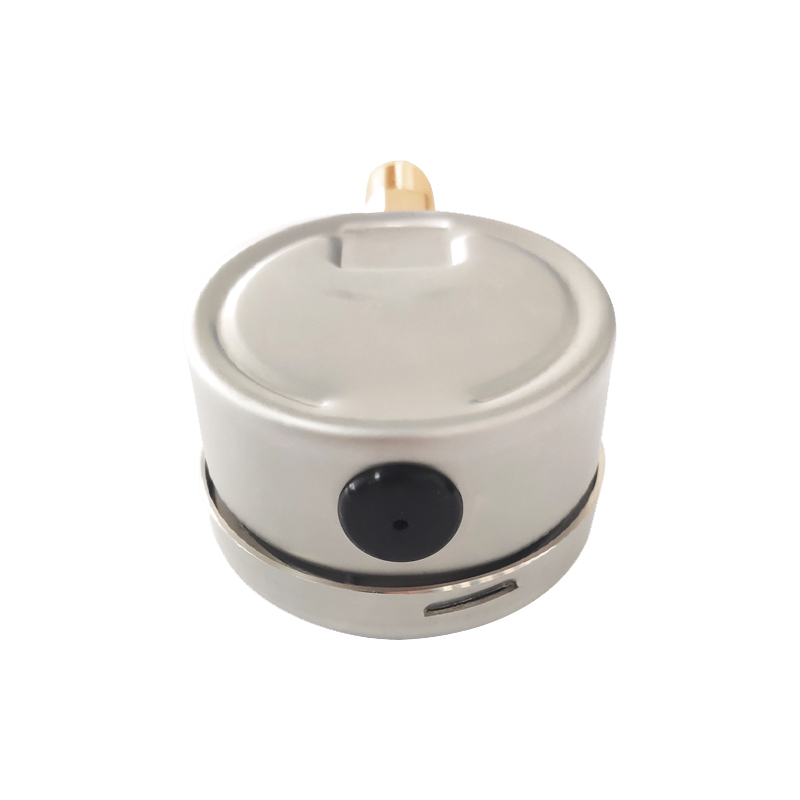
Août . 12, 2024 02:00 Back to list
Exploring Various Types of High-Quality Differential Pressure Gauges for Industrial Applications
Understanding High-Quality Differential Pressure Gauge Types
Differential pressure gauges are essential instruments in various industries, providing critical information regarding the pressure difference between two points in a process system. These gauges are particularly significant in applications where maintaining specific flow conditions or monitoring filter conditions is crucial. This article explores the types of high-quality differential pressure gauges, their working principles, applications, and factors to consider when choosing the right gauge.
Types of Differential Pressure Gauges
1. Bourdon Tube Differential Pressure Gauges One of the most common types, the Bourdon tube gauge operates based on the principle of a coiled or curved tube that straightens as pressure increases. The movement caused by the differential pressure results in the needle movement on the dial, indicating the pressure difference. Known for their durability and reliability, Bourdon tube gauges can handle a wide range of pressures and are suitable for most industrial applications.
2. Diaphragm Differential Pressure Gauges These gauges utilize a flexible diaphragm that deforms in response to pressure differences. The movement of the diaphragm is directly connected to a pointer or an electronic signal output. Diaphragm gauges are particularly effective in low-pressure applications and can handle viscous or corrosive fluids, making them ideal for chemical and pharmaceutical industries.
3. Capacitive Differential Pressure Gauges Capacitive gauges measure changes in capacitance as the diaphragm moves due to differential pressure. They offer high accuracy and allow for digital displays and integration into automated systems. These gauges are suitable for critical applications where precise measurements are paramount, such as in HVAC systems and process control.
4. Digital Differential Pressure Gauges Incorporating advanced electronics, digital gauges provide real-time readings, data logging, and remote monitoring capabilities. These devices can often interface with computer systems for enhanced data analysis and process optimization. Digital gauges are increasingly popular in applications requiring precise and continuous monitoring, such as HVAC, water treatment, and cleanroom environments.
5. Strain Gauge Differential Pressure Transducers Utilizing the principle of strain, these transducers convert physical changes in pressure into an electrical signal. They are highly sensitive and often used in laboratory settings or applications requiring minute pressure measurements. Their versatility and accuracy make them suitable for research and development environments.
high quality differential pressure gauge types

Applications of Differential Pressure Gauges
Differential pressure gauges find applications in several fields, including
- Oil and Gas Monitoring pressure differences in pipelines and tanks to ensure safe operation. - HVAC Ensuring proper airflow in ventilation systems by monitoring filter conditions and duct pressures. - Water Treatment Assessing filter integrity and flow conditions in treatment plants. - Pharmaceuticals Monitoring processes and ensuring compliance with stringent regulatory standards.
Factors to Consider When Choosing a Differential Pressure Gauge
1. Measurement Range Select a gauge that fits the expected pressure range of the system to ensure accurate readings. 2. Process Conditions Consider the media to be measured (gas, liquid, viscous, corrosive) and choose a gauge that can withstand these conditions. 3. Accuracy Requirements Depending on the application, select a gauge with the necessary precision. 4. Installation Compatibility Ensure the gauge is compatible with existing systems and can be installed easily. 5. Environmental Factors Assess the operating environment, including temperature, humidity, and potential exposure to hazardous conditions.
Conclusion
In conclusion, high-quality differential pressure gauges are vital for the reliability and safety of various industrial processes. By understanding the different types available and their specific applications, industries can select the appropriate gauge to ensure optimal performance and efficiency in their operations. Whether it’s through mechanical, digital, or electronic means, the right differential pressure gauge can significantly enhance the monitoring and control of pressure in a multitude of systems.
-
High-Precision 5 Valve Manifold Differential Pressure Gauge Suppliers
NewsApr.29,2025
-
High-Precision Diaphragm Vacuum Pressure Gauges Manufacturers & Quotes
NewsApr.29,2025
-
Omega Differential Pressure Gauges High Accuracy & Durability
NewsApr.28,2025
-
Low Pressure Differential Pressure Gauges Precision Solutions & Quotes
NewsApr.28,2025
-
Digital Diaphragm Pressure Gaauge Precision Measurement & OEM Quotes
NewsApr.28,2025
-
Differential Pressure Gauge China Price High-Accuracy & Best Quotes
NewsApr.28,2025
